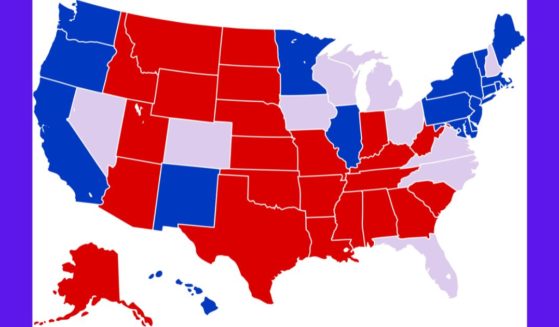Californians' Leftist Gov't Betrays Them, Sells Their Info for $50 Million per Year
Your personal information is being bought and sold. Unless you’re an internet naïf, you know this. Facebook, Gmail, Twitter — none of these things are free. As the privacy-obsessed guy on your news feed is fond of telling you — always as if he’s discovered some kind of profound truth no one else has yet — when it comes to free stuff on the web, you are the product.
I’m used to this kind of mentality when dealing with social media. Where it gets a little dodgy is when dealing with my state government.
According to an investigation by Vice, the Department of Motor Vehicles in the people’s republic of California is making over $50 million a year selling the personal information of citizens to third parties.
While other states sell this information, too, Vice notes “California’s sales come from a state which generally scrutinizes privacy to a higher degree than the rest of the country.”
Check out a discussion on the report from last week’s “Outnumbered” on Fox News.
Vice discovered the information through a Public Records Act request and found the state’s business in selling personal information had grown over $10 million in the past few years.
In the financial year of 2013/14, for instance, the DMV collected $41,562,735 in revenue from selling personal data.
Meanwhile, in 2017/18, the state collected $52,048,236.
As Vice stated, California’s hardly the only place that does this. Yet, it’s also home to the California Consumer Privacy Act, one of the strictest pieces of privacy legislation in the country.
The California Department of Motor Vehicles is selling customers’ personal information for millions of dollars, according to a report from VICE released this week.https://t.co/lvS2xHxxyy
— NBC Bay Area (@nbcbayarea) November 27, 2019
According to TechCrunch, the CCPA “requires businesses over a certain user and/or revenue threshold to disclose what personal data they collect; the purposes they intend to use the data for; and any third parties it will be shared with; as well as requiring that they provide a discrimination-free opt-out to personal data being sold or shared.”
In the article, Marty Greenstein, public information officer at the California DMV, defended the practice of selling information.
In a letter to Vice, he wrote that the sale of the information leads to “including availability of insurance, risk assessment, vehicle safety recalls, traffic studies, emissions research, background checks, and for pre- and existing employment purposes.”
“The DMV takes its obligation to protect personal information very seriously. Information is only released pursuant to legislative direction, and the DMV continues to review its release practices to ensure information is only released to authorized persons/entities and only for authorized purposes. The DMV also audits requesters to ensure proper audit logs are maintained and that employees are trained in the protection of DMV information and anyone having access to this information sign a security document,” Greenstein wrote.
California DMV spokeswoman Anita Gore echoed a similar statement when she told Fox Business in an email that the DMV “does not sell driver information for marketing purposes, or to generate revenue outside of the administrative cost of the program. DMV is statutorily required to provide certain driver and vehicle related information, and is permitted to recover its costs for doing so.”
“Information is only released pursuant to legislative direction, and the DMV continues to review its release practices to ensure information is only released to authorized persons/entities and only for authorized purposes,” she continued.
“The DMV also audits requesters to ensure proper audit logs are maintained and that employees are trained in the protection of DMV information.”
It’s unknown what data was sold to what entities by the California DMV, although Vice reported that other states had sold the info to credit reporting agencies, data brokers and — perhaps most worryingly — private investigators, including those working on finding out whether an individual is carrying on an extramarital affair.
Other states confirmed to Vice that some commercial requesters had to be cut off after they abused their access.
The disgusting thing about this isn’t that your information is being bought and sold. If you want to opt out of this sort of thing in the private sector, you can.
You don’t have to have a Facebook or Twitter account. The only thing you miss out on is being able to take part in social media.
In the case of California, however, opting out means that you don’t get a state ID or get to drive. It’s that simple. There’s a marked difference.
It’s not just Californians who should be concerned about this. That said, for a state that pays so much lip service to the concept of privacy when it comes to the private sector, its bureaucrats obviously can’t be trusted to protect it in the public sector.
How can they regulate businesses with straight faces when this is what they do with personal information on the state level?
Truth and Accuracy
We are committed to truth and accuracy in all of our journalism. Read our editorial standards.












